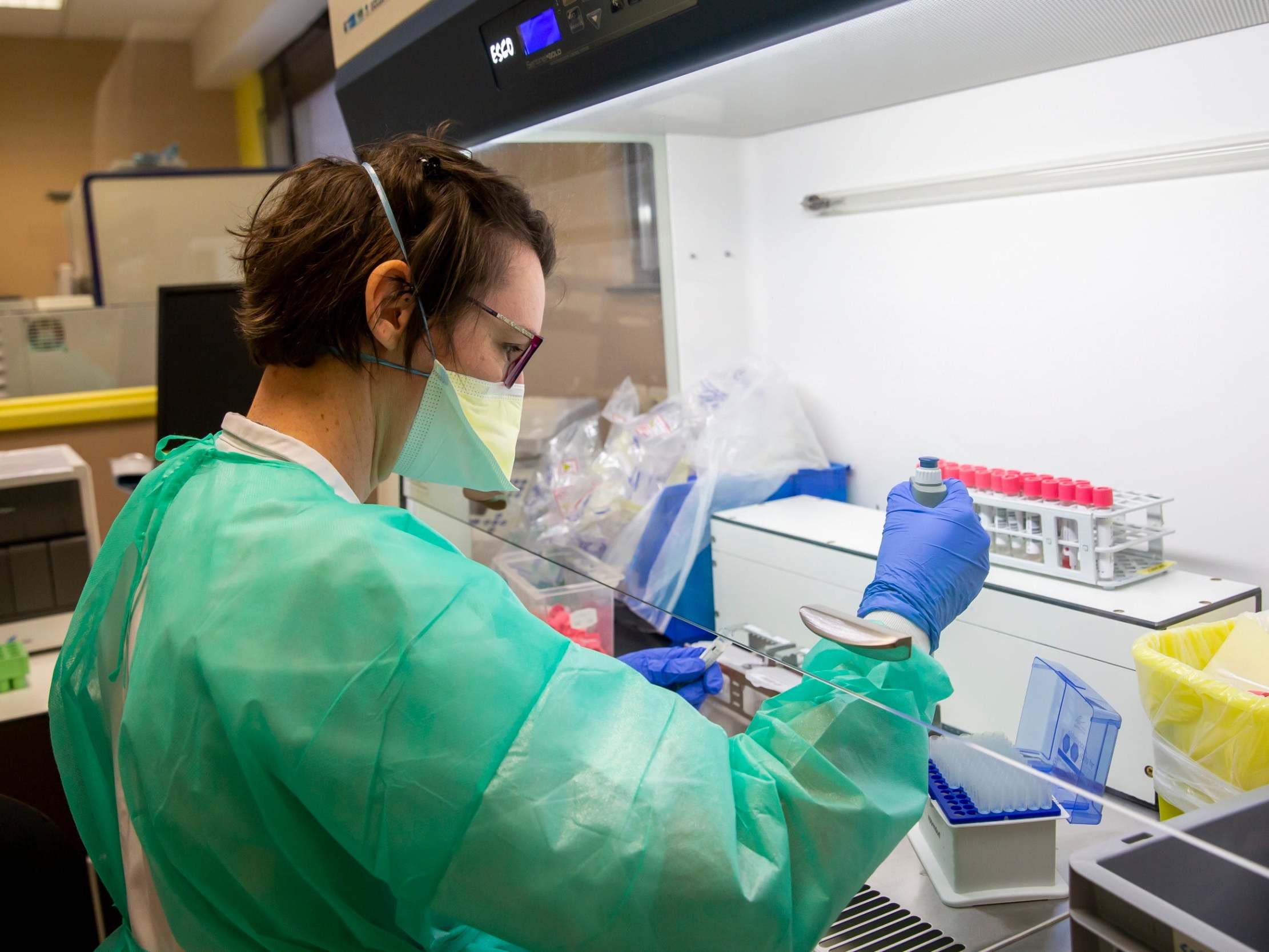US military research agency developing new test for Covid-19
Darpa says its breakthrough technology could be manufactured at large scale

US military scientists are working on a new “early detection” test for Covid-19 that could help prevent infected people from spreading the virus.
The Defence Advanced Research Projects Agency (Darpa) said the technology was developed as part of its ECHO programme — which was originally set up in 2018 to identify if troops had been exposed to chemical and biological weapons.
If successful, the new test would be passed from the US Defence Department to the Health Department for “manufacturing at large scale”, Darpa said in a statement.
Scientists involved in the project said they hoped it could diagnose the disease as early as 24 hours after exposure — around four days quicker than existing tests.
As many people do not develop symptoms until around five days after being infected, and some not at all, this would significantly reduce the time contagious carriers are potentially able to spread the virus.
“We are all extremely excited,” Dr Eric Van Gieson told the Guardian. “We want to roll this test out as quickly as we can, but at the same time share with others who might want to implement in their own countries.
“We have evidence that diagnosis happens in the first 24 hours for influenza and an adenovirus. We are still in the midst of proving that with Covid-19.”
Darpa is hoping to put the test forward for emergency use authorisation by the US Food and Drug Agency within a week. If granted it could be rolled out by the end of the month.
The agency said it was currently evaluating “three different diagnostic technologies”.
They include a PCR-based test at the University of Nebraska medical centre; an epigenetic assay with the Icahn School of Medicine at Mount Sinai and the support of Qiagen, a research company based in Germany; and a test for early detection of human responses to SARS-COV-2 with the support of Fluidigm, a US manufacturer of research equipment.
Subscribe to Independent Premium to bookmark this article
Want to bookmark your favourite articles and stories to read or reference later? Start your Independent Premium subscription today.

Join our commenting forum
Join thought-provoking conversations, follow other Independent readers and see their replies